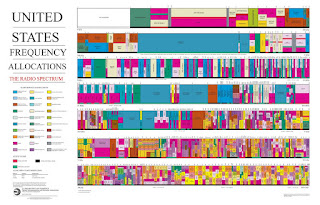This is my fifteenth consecutive Memorial Day message. You can find the previous fourteen at the end of this message.
Last year, I said I never could have imagined that I would be writing in the midst of a pandemic that caused a near virtual lockdown of the nation. Now, thankfully, we are emerging from the pandemic, in no small part due to the rapid development in 2020 of highly effective vaccines and this year to the increasing number of Americans already vaccinated.
While this year's message will be more personal than many others, Memorial Day, above all, is always about memory. About taking time to remember those men and women in our Armed Forces who paid the ultimate price defending our country and protecting our freedom.
My father, Aaron May, served in the 68th Armored Infantry Battalion of the famed 14th Armored Division that landed in Marseilles, France on October 29, 1944. The troops first saw combat on November 20, 1944. After 167 days of combat, the Division fired its last shots on May 2, 1945.
On May 2-3, 1944, after already liberating thousands of Allied prisoners of war as the Division's troops battled eastward from France and into Germany, they liberated some of the subcamps at the large Dachau Concentration Camp complex as well as other nearby camps holding Jewish prisoners. It was a full 40 years later before my father talked about what he saw, smelled, and heard at Dachau – about the unimaginably emaciated survivors who were little more than skeletons, about the unforgettable pervasive stench of death, and about the cries of desperation for help and of joy at the prospect of liberation.
It’s no wonder that the 14th Armored Division quickly earned the unofficial nickname “The Liberators.” More than a half-century later, on October 22, 2002, the Secretary of the Army awarded the Division what is called a "Distinctive Designation" in recognition of its unique accomplishments. From that date on, the Division will forever be carried on the rolls of the Army as the "LIBERATORS."
My father made it home and was discharged in December 1945. Memorial Day is about remembering all those who did not.
And we’ll dishonor their sacrifice if we don’t recognize that we can continue, as the Founders put it in the Constitution’s Preamble, to seek “a more perfect Union,” without using the faults of our past, including the stain of slavery, as weapons primarily intended as wedges to divide us. Or as swords intended to diminish the force of the fundamental principles upon which America was founded – again, as the Constitution's Preamble has it, to "establish Justice" and "to secure the Blessings of Liberty to ourselves and our Posterity."
My father and I talked often about politics. Having fought against Nazi tyranny and witnessed first-hand Nazi death camps, he was always fearful of extremes in American politics. I’m not sure whether he was familiar with Ben Franklin’s famous (but perhaps apocryphal) retort when asked by Elizabeth Powel what the Constitutional Convention had bequeathed America: "A republic, if you can keep it." But I know, based on his wartime experience and his gut instincts, that, indeed, he worried whether we could keep it.
During our discussions, my father often – too often I sometimes thought as a young man – said that, in America, our politics must not veer too far from the Center, that they must not lurch to the extremes.
From my own Center-Right perspective, I am no longer as certain as I have been throughout most of my adult life that the Center – and by that, I mean the Center-Right and the Center-Left – can hold. In my view, the mainstream media contributes, wittingly or not, to our dysfunctional politics by not calling out far-left extremism in the same way that it dwells on the far-right. Both are problematic.
Moreover, the metastasizing Cancel Culture, which has the effect of shrinking the public space in which matters of legitimate public concern ought to be debated, only serves to deepen our political and philosophical divisions, especially in light of the leftward bias exhibited by the dominant social media platforms in the exercise of their "cancellation" discretion.
In his most recent Wall Street Journal column, Daniel Henninger wrote this: "America's current waves of violence – right-wing militias, left-wing anarchists, street protesters, urban gangs, anti-Semitic assaults and solo nut cases – are pushing the country to a dangerous level of disorder."
Were he still living, my father would be fearful for our country's future.
In his Farewell Address, Ronald Reagan declared: "If we forget what we did, we won't know who we are. I am warning of an eradication of that – of the American memory that could result, ultimately, in an erosion of the American spirit."
On this Memorial Day, and every Memorial Day, we should honor all those servicemen and women who paid the ultimate sacrifice in World War II, and all of America's wars, by remembering. And by recommitting to the ideals for which they fought, and which are embodied in our Constitution: To “establish Justice” and “to secure the Blessings of Liberty to ourselves and our Posterity.” If we don't, and there is an erosion of the uniquely American spirit, they shall have died in vain.
I wish you and your family the best for a safe, healthy, happy, and meaningful Memorial Day!


















